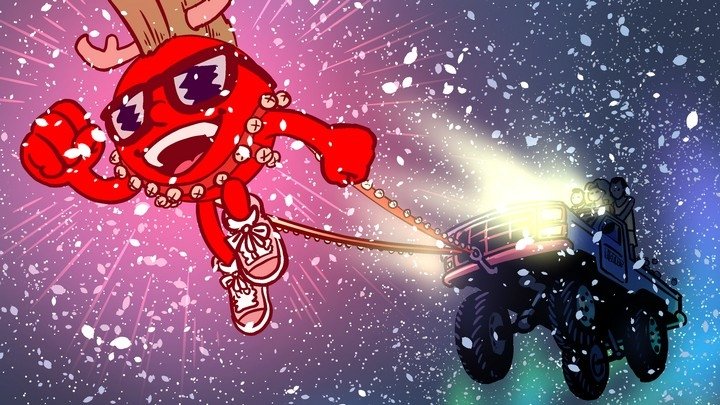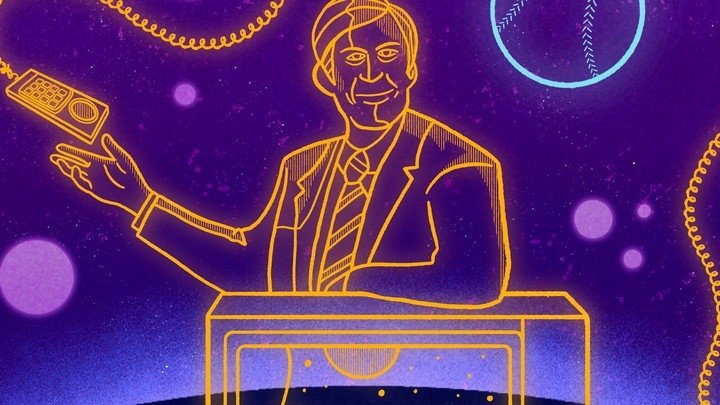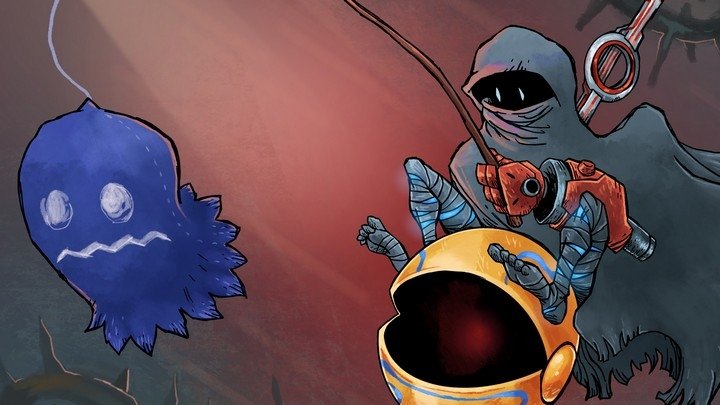Switch's success brings with it a welcome throwback dynamic for video game retail
Nintendo's hot new system carries with it the potential to push back against the blockbusters-only mindset of packaged video games.
Today, Nintendo reported some impressive sales numbers for Switch: In slightly less than four months' time, the innovative handheld-console hybrid has sold nearly five million units worldwide. It would presumably be selling even better if people could actually get their hands on the thing, but refusing to meet demand straightaway has always been one of the company's favorite tactics.
As I've followed Switch over the past few months, I've found myself surprised and gratified by an unexpected trait of the system: It has a retail presence like no other home console I can remember. I worried for Switch's prospects at the outset. I love the proposition behind the system — console-caliber tech, playable on the go — and I'm happy to see its flexible, fluid play design seems to have spoken to so many other game enthusiasts. But from the very beginning, Switch's third-party support has looked, shall we say, anemic.
Only a handful of big-name publishers seem willing to publish on Switch, and they're not really bringing their A-game (or should I say, triple-A-game). Ubisoft is there with a Mario crossover and Just Dance, but no Watch_Dogs 2 or Assassin's Creed. 2K has a wrestling game in the works, but no ports of recent big-name titles like Civilization or Mafia. Electronic Arts has FIFA on the upcoming roster, but forget about Star Wars Battlefront 2. Activision gave us a quick port of Skylanders at launch, but don't expect to play Destiny 2 or this year's Call of Duty on Switch. Square Enix published I am Setsuna, but remains mum on the prospect of localizing its familiar Japanese Switch releases like Dragon Quest Heroes or the Mana series collection.
Normally, big franchises serve as the markers of success for a console. Their absence on Wii U was largely seen as a major cause for that system's failure to find an audience. These are the multi-million selling franchise titles that dominate E3 conferences and build hype among fans and retailers, and Switch has none of them. The one major third-party creation due out for Switch this year that doesn't have its roots in a sports or television property will be Skyrim: A six-year-old Bethesda RPG that Nintendo will be publishing itself.
But something interesting has happened with Switch. The vacuum created on the platform by these missing blockbusters is filling rapidly, and not with the sort of shovelware that defined Wii and, to a lesser degree, Wii U. Instead, the Switch's retail roster for the remainder of 2017 and into the new year consists almost entirely of high-quality indie games from small publishers. Nintendo first-party releases are there, too, but those are to be expected. Less typical are the quirky little arthouse games and niche import titles like Penny-Punching Princess, Tiny Barbarian DX, and The Longest 5 Minutes.

Games like these certainly had a presence on Wii U, make no mistake about it. And you can find a lot of them on PlayStation 4 and Xbox One as well. But for the most part, they've been digital-only releases, occasionally afforded physical copies by direct-sales ventures like Limited Run Games in vanishingly tiny quantities. Certainly they've never been slated to sit on shelves at Target or Toys R Us as the bulk of any platform's offerings. And yet we live in a world where Blade Strangers, a hand-drawn 2D fighting game featuring characters from niche brawler Code of Princess and ultra-cult platformers Cave Story and Umihara Kawase, will very like show up at a Wal-mart near you. That's wonderful, if incredibly bizarre.
Nintendo and its licensees are in the process of creating a platform whose retail-facing personality resembles no other. Maybe this is a matter of necessity, since Switch doesn't have many recognizable properties not published by Nintendo itself. Still, regardless whether this has taken shape by design or by accident, it makes Switch a console like no other in recent memory. The system closest spiritual antecedent is arguably PlayStation Vita; I can't help but feel that in five or six years we'll look back at Switch and say, "Oh, so that's what Vita would have been like if Sony hadn't given up on it after a few months."
In a way, Switch's quirky retail presence amounts to a side effect of the fact that Nintendo has so much riding on the system. Sony could afford to shrug and give up on Vita when it didn't become an instant hit. Nintendo, however, pins its fortunes on each and every major product launch, which is why the dire performance of Wii U created so much trouble for the company. We saw this in action with the 3DS: That device belly-flopped right out of the gate, just as Vita did. But Nintendo needed 3DS to be financially viable, so the company knuckled down and did everything it could to force 3DS to work out. As as result of this concerted effort, the 3DS (now in its seventh year of life) is closing in on respectable lifetime sales of 70 million, while Sony won't actually cop to how many — or how few — Vitas it's moved. But Sony's doing fine; the PlayStation 4 is selling like gangbusters. They didn't need the Vita to be a hit in order for the company to survive, so they never pushed the Vita to achieve its true potential.

That shouldn't be a problem with Switch. Nintendo always squeezes the most from its own hardware in terms of both tech and content, and the company's steadily lineup of first-party releases over the coming year guarantee that will continue to be the case with their new console.
Nintendo fans buy Nintendo platforms for Nintendo games, which has increasingly become a problem with other publishers. Corporations like EA have long complained that their high-profile releases tend to founder on Nintendo systems, and it doesn't make sense for them to invest huge amounts of money into bringing tech-driven games to an unfriendly ecosystem. However, what proves toxic for giant business entities focused on massive profits represents a huge opportunity for smaller publishers like Nicalis and NIS America. EA needs to sell millions of units to recoup costs on a game like Mass Effect, but I feel fairly confident that something along the lines of Touhou Kobuto or Ittle Dew 2 can turn a profit with vastly more modest sales. NIS America has already enjoyed the benefits of taking a chance on Switch: Disgaea 5 shipped at launch and utterly destroyed all sales expectations, pretty much single-handedly putting the once-struggling publisher back into the black.
Games like this have been present on pretty much every console for the past few years, but almost entirely in digital format. And even when the likes of Disgaea 5 or Sine Mora show up as packaged releases for PS4, they have to coexist side-by-side with heavily marketed big-budget projects such as Injustice 2 and Horizon: Zero Dawn. On Switch, though, there's a greater opportunity for these games to enjoy a more prominent retail presence. The only high-profile competition they have comes from Nintendo creations like Splatoon 2 and Super Mario Odyssey. Without high-profile third-party blockbusters to crowd them out, interesting and innovative original works from smaller studios have the potential to sell better and make their way into the hands of a much wider audience. A glance at Switch's upcoming releases on sites like Best Buy or Amazon presents a unique, personality-packed selection of games we haven't really seen at retail since the heyday of the DS a decade ago, at that handheld's pinnacle... right before piracy and the rise of mobile gaming yanked the rug out from beneath its proverbial feet. Unlike with the DS, Switch is on the rise, not looking at the end of its days, which means smaller publishers like XSEED and THQ Nordic have a better chance of thriving.

Again, none of this is particularly new; Nintendo's been cruising along without much high-profile third-party support since Wii launched. And again, many of the Switch's upcoming retail releases are already available on PS4 or Steam. But I feel like all of these individual factors have never come together in a single place before, on a fresh new system on the ascent, one whose dual-purpose design allows it to sidestep the disdainful marginalization handheld systems normally have to contend with. In a perfect world, Switch's unconventional mix of retail games would result in strong platform sales due to compelling first-party works, with offbeat indie and small-studio creations enjoying greater exposure and better sales as players look to expand their libraries beyond Nintendo releases. Our world is far from perfect, but it would be nice to see the stars line up for Switch and its supporters, just this once.
If Switch continues to rise, of course, its content mix will inevitably change. More publishers will attempt to cram their big releases into the platform's limitations, and we'll see vastly more shovelware in the Wii vein. At the moment, though, the Switch catalog reminds me a lot of the NES days, where the playing field was more equal and great games stood a better chance at being discovered regardless of their development and marketing budgets. Switch in the second half of 2017 feels like it's heading toward the platonic ideal of Nintendo's business model. It's probably a fleeting moment in game history, so please enjoy it while it lasts.




